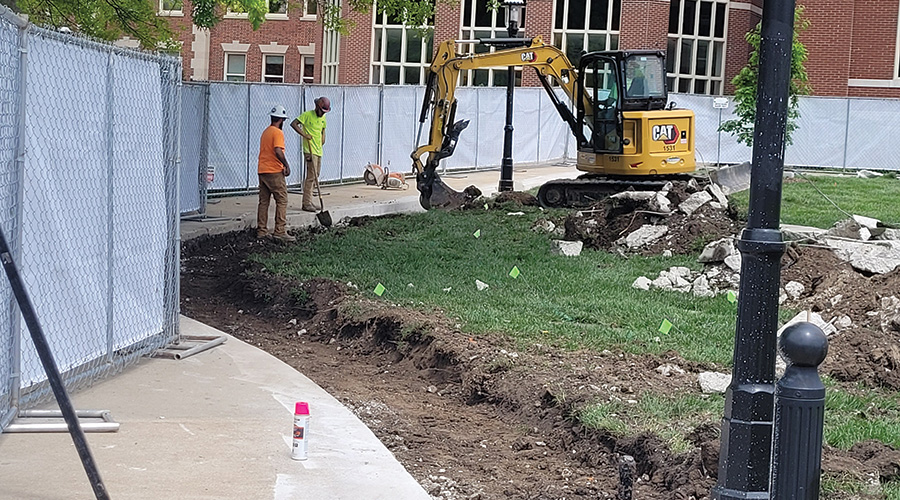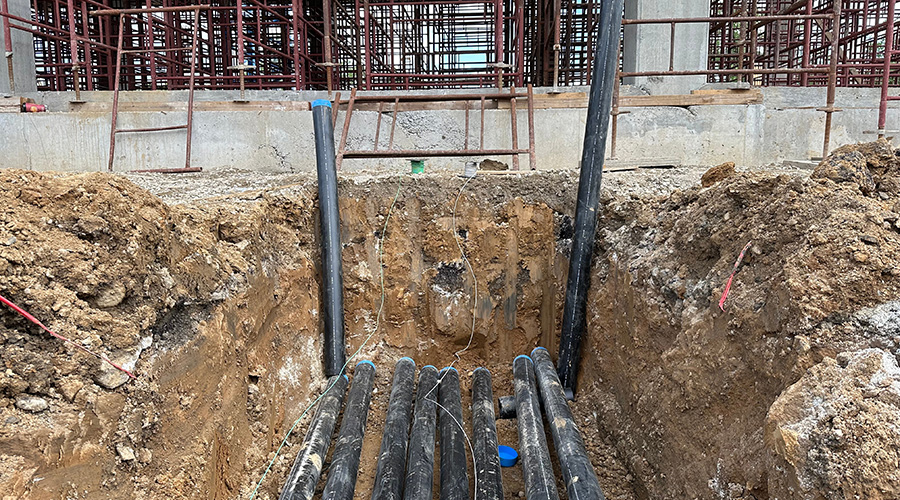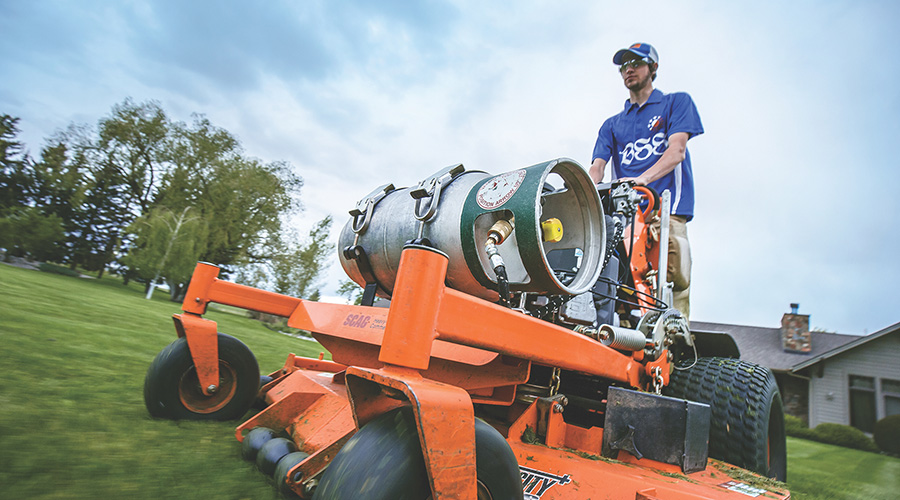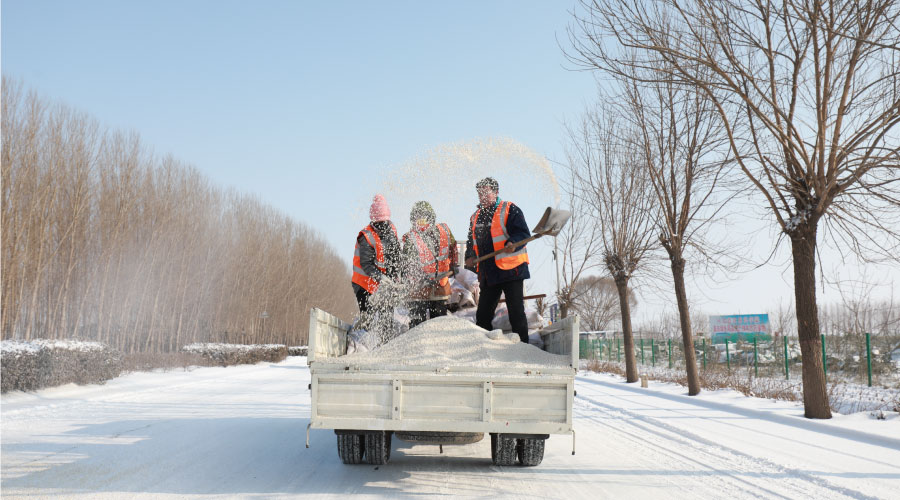 Photo courtesy of University of Missouri
Photo courtesy of University of Missouri Strategies for Renting Light Construction Equipment
Managers not only need to consider project needs, but transportation issues and operator skills
Mowers receive a great deal of attention from grounds and landscapes managers. That attitude is hardly surprising, given mowers’ cost and their critical role in ensuring the appearance of landscapes surrounding institutional and commercial facilities. But savvy managers understand that to keep landscaped areas looking and performing their best, departments must rely on a range of additional equipment to perform upgrades, renovations and other light-construction projects.
In many cases, departments opt to rent this equipment instead of purchasing it for a host of compelling reasons. The challenge for managers in renting light-construction equipment is ensuring these units operate safely and cost-effectively in order to help departments deliver successful projects.
Needs and benefits
Managers have an array of options when it comes to renting equipment for landscape projects, but they must navigate such in-house considerations as cost, scheduling and staffing issues. For these reasons, the equipment rental process can be complex.In many cases, one good starting point is understanding department resources.
“Sometimes, it comes down to efficiency,” says Joe Kovolyan, director of landscape services and botanical gardens at the University of Missouri. “We might have something that we can make work, but it's going to take us three times as long.” Kovolyan advises managers to consider a rental as an opportunity to learn about equipment options.
“Rent something that you might buy,” he says. “It gives you a chance to try that unit out. The equipment not only can help us get the project done. It also lets us kick the tires on future purchases and get a feeling for parts and service.”
Managers also should avoid brand loyalty in favor of a smarter decision that takes additional factors into consideration. While a manager might prefer one manufacturer’s equipment, another manufacturer might offer better sales support, service and parts availability.
“What makes more sense — going with the group that can provide all the parts and service you need or the group that's farther away that doesn't provide all that but that is the name brand you like?” Kovolyan says.
Understanding needs also involves being aware of the varied activities that take place in facilities where operators will use the rented equipment.
“We've got some pretty sensitive buildings on campus,” says Matthew Bailey, landscape services director at Michigan State University. “Our facility for rare isotope beams where you cannot have any exhaust coming in any of the vents with the research they are doing in there. We're very cognizant of the use of the building, and sometimes we rent something that's battery operated so we're not being loud, and we're not causing any emissions.”
One benefit of renting light construction equipment is that it can give departments access not only to large pieces of equipment but also specialized units that deliver more focused performance.
“We've rented small track machines where you stand on the back of them — smaller stuff to move soil or block through buildings, where we've had to bring in some smaller track equipment when we don't have that specialty-type equipment," Bailey says.“We've also used telehandlers if we’re putting in marble or planters, things of that nature. We can telescope materials or plant material in.”
In-house impact
In addition to the benefits that rented equipment can bring to departments, managers also need to understand the demands that come with expanding their departments’ equipment arsenals, starting with transportation.
"Is this a piece of equipment we can go pick up, or do we need to have it delivered and then picked up?” Kovolyan asks. “That affects the cost. It's one of the first things we look at.” On the operations side, managers need to be sure in-house staff can operate the rented equipment efficiently and safely.
"If it’s something new or something that we're not familiar with, can (the rental company) provide the training and a walk-through with us?” he asks. “What we normally do is have the operator that we're going to have using that piece of equipment be on site when the equipment shows up so the company rep can go through the process with them.” He cautions managers to decide carefully about whether the most effective option is for in-house personnel to operate rented equipment.
“Equipment is only as good as the operator,” Kovolyan says. “Just because you can rent it doesn't mean you have someone on staff that can operate it. You have to be really honest with yourself and your staff. Renting equipment is a great way for staff to get used to and trained on a piece of equipment.”
Managers also should consider having a mechanic available on site.
"All this equipment is so different, depending on the manufacturer,” Kovolyan says. “Sometimes, you can be scratching your head trying to figure out which body panel you have to pop off to access something that’s quick and simple that doesn't warrant a service call."
Successful equipment rental goes well beyond the piece of equipment in question, so managers need to build strong relationships with equipment dealers. Putting effort into this part of the process can benefit departments and their organizations well past equipment delivery.
"It really helps when it comes to billing time, for example, because nine times out of 10, something on a piece of rental equipment seems to be a little squirrely on the rental charges at the end,” Kovolyan says. “Maybe it's a fuel charge that's not supposed to be there. That wasn't part of the P.O. that we had created for the chargeback. If we can work through those issues because we have a good relationship, that's more important."
Related Topics:













